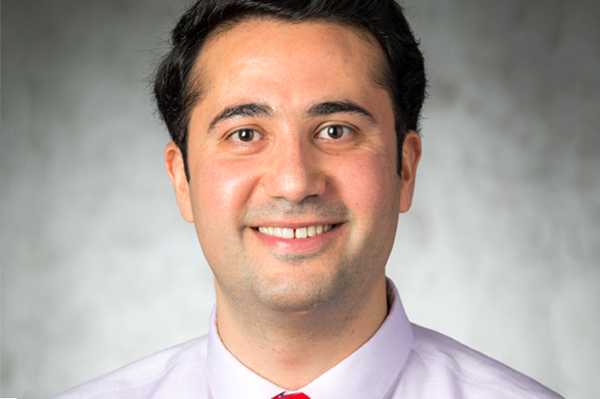
Hometown: Tabriz, Iran
Degree and Year of Study: Ph.D. in Mechanical Engineering, Graduate Minor in Peace Studies
Research Interests: 3D Printing of thermoelectric generators for energy harvesting; energy-related conflict resolution
Why did you choose to pursue a graduate minor in peace studies?
My research is about developing high-performance thermoelectric generators for harvesting waste heat. More than 60 percent of consumed energy is wasted in the form of heat. This is not just a waste of resources, but also exacerbates global warming. Using thermoelectric generators we can generate electricity from waste heat. I decided to pursue a graduate minor in peace studies to further advocate the role that this technology can play to alleviate global warming.
How does peace studies influence your engineering studies and vice versa?
Peace studies provided me with a better perspective on the importance of my engineering research and its impact on people's lives. Knowing that my research may have such a tremendous impact encourages me to explore more and be a force for good.
How vital do you think accessible technology is to the development and maintenance of peace?
My research is focused on 3D printing of functional devices, including thermoelectric generators, using nano-particle based inks. Scalable manufacturing of thermoelectric generators is imperative and 3D printing is one such technique for manufacturing these devices. Promoting and advancing 3D printed thermoelectric generators provides universal access to this technology, and hopefully by further improving their performance we can generate more electricity from waste heat sources.
This can play a significant role in climate change related conflicts. Moreover, our printed thermoelectric generators can be used for energy harvesting from the human body. Based on the temperature difference between the human body and environment, these printed thermoelectric devices can generate energy that can run a variety of sensors, such as monitoring a heartbeat without needing a power source.
You started your engineering studies in Tabriz, then moved to Oklahoma, and now are studying in Indiana. How has each of these places affected your view of peace studies and its importance?
I started this exciting journey at Tabriz and learned the basic fundamentals of mechanical engineering. Then I decided to move to the U.S. in 2014 and pursue graduate studies while exploring a new life here with a diverse culture. Doing a master's at the University of Oklahoma helped me to shape my scientific personality and think about how I can apply my engineering knowledge to solve real life problems and make a better life for other people.
Then I moved to Notre Dame in 2018, and started my Ph.D. research on developing high-performance flexible thermoelectric generators. I was very excited and grateful when I learned about the graduate minor in peace studies at the Kroc Institute. As a member of the Kroc Institute family, I am very keen to learn more about peace studies and the ways that I can integrate my engineering knowledge with peace. Very few things are as rewarding as knowing that my innovation has a positive impact on people's lives. I want to devote my energy to be a force for good and create a path to a good life, not only for myself but also for others.
Originally published by at kroc.nd.edu on February 26, 2021.